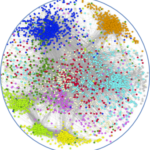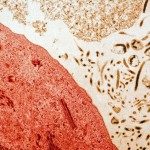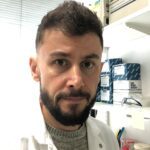Link to Pubmed [PMID] – 30419076
Link to DOI – e100743010.1371/journal.ppat.1007430
PLoS Pathog 2018 Nov; 14(11): e1007430
Lassa virus (LASV) is responsible for a viral hemorrhagic fever in humans and the death of 3,000 to 5,000 people every year. The immune response to LASV is poorly understood, but type I interferon (IFN-I) and T-cell responses appear to be critical for the host. We studied the response of myeloid dendritic cells (mDC) to LASV, as mDCs are involved in both IFN-I production and T-cell activation. We compared the response of primary human mDCs to LASV and Mopeia virus (MOPV), which is similar to LASV, but non-pathogenic. We showed that mDCs produced substantial amounts of IFN-I in response to both LASV and MOPV. However, only MOPV-infected mDCs were able to activate T cells. More surprisingly, coculture with T cells completely inhibited the activation of LASV-infected mDCs. These differences between LASV and MOPV were mostly due to the LASV nucleoprotein, which has major immunosuppressive properties, but the glycoprotein was also involved. Overall, these results suggest that mDCs may be important for the global response to LASV and play a role in the outcome of Lassa fever.




